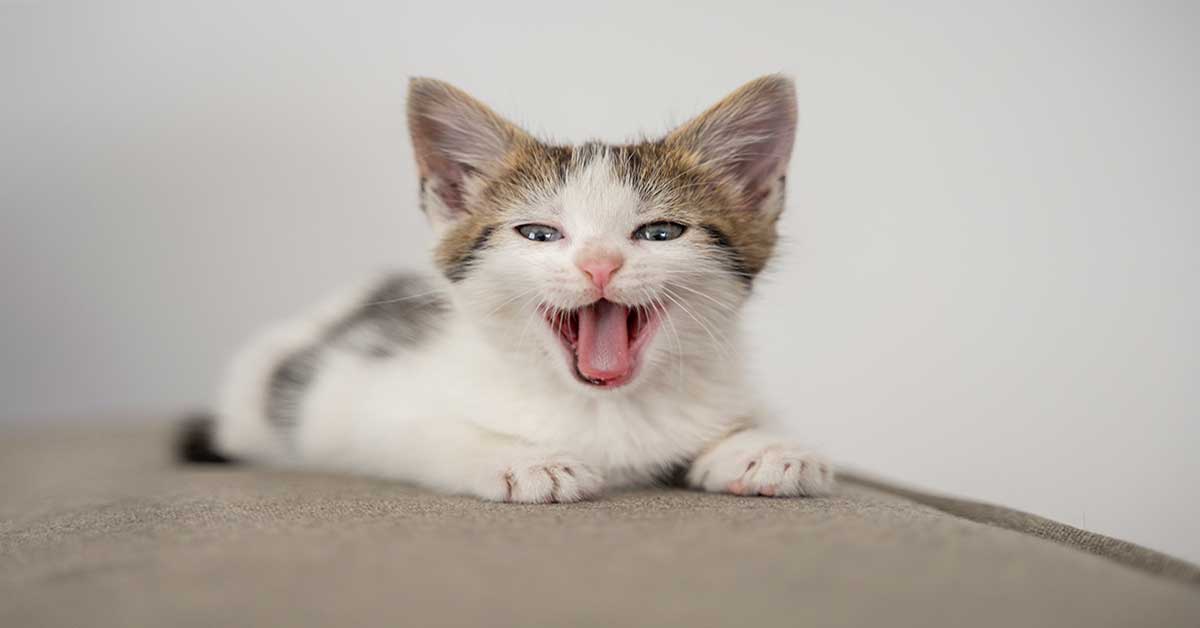Cats are fascinating and friendly pets known for their unique vocalization behaviors. From gentle purrs to loud meows, their sounds can express a variety of needs and emotions. But why do cats cry? While cats don’t shed tears like humans when they’re sad, their vocal cries often convey discomfort, hunger, or emotional distress.
This article is all about the reasons behind this intriguing behavior. You will know the potential causes of a cat’s crying, the difference between meowing and crying, and how to interpret and respond to these vocal cues effectively.
Understanding Why Do Cats Cry
We asked this question in our community and selected the most relevant answer for your interest. Besides, there are many other reasons why do cats cry… Read the full article to learn more…
Cats Cry to Indicate Discomfort or Hunger
Scientifically, cats cry to indicate discomfort, hunger, attention-seeking, or distress. For instance, studies have shown that cats develop vocal patterns that elicit human responses, often mimicking the frequency of a baby’s cry to attract attention. A crying cat may also indicate health issues such as pain or cognitive dysfunction in older cats. Meowing or yowling are vocalizations that cats frequently use to communicate a need or emotion, but they are not related to crying like humans.
Khurram Mir, Founder and Chief Marketing Officer, Kualitatem Inc
This insight highlights how cats rely on their vocal abilities to express themselves. They may also cry due to boredom, loneliness, or fear. Changes in their environment, such as the introduction of a new pet or moving homes, can also lead to increased crying.
Health Concerns Behind Crying in Cats
Sometimes, a crying cat may be signaling an underlying health issue. Cats can’t articulate their pain in words, so they resort to loud and frequent vocalizations. For instance, older cats with cognitive dysfunction may cry due to confusion or anxiety. Similarly, physical pain from injuries, arthritis, or dental issues could make a cat more vocal than usual.
Veterinarians emphasize that sudden, excessive crying should never be ignored. If a cat begins crying more frequently or in an unusual tone, it might be a sign to consult a vet. Diseases like hyperthyroidism and kidney problems are common to cause increased vocalization. Additionally, unspayed female cats often cry during their heat cycles, a behavior driven by hormones and the instinct to mate.
How to Respond When Cats Cry
When a cat cries, understanding and addressing the cause is essential. If the cat is hungry, feeding it on a schedule can prevent excessive meowing. For attention-seeking cries, spending quality time playing with your cat can reduce their vocalizations. Cats thrive on routine, so establishing consistent feeding using automatic feeders, playing with interactive toys, and sleeping habits can make them feel secure.
Never punish a cat for crying. This approach can damage the trust between you and your pet, worsening the issue.
Final Words
Cats cry for several reasons, from hunger and discomfort to health issues and emotional needs. Unlike human crying, their vocalizations serve as a crucial communication tool. By understanding these cries, pet owners can respond to their cats’ needs and strengthen their bond.
Taking time to observe your cat’s behavior, addressing any health concerns, and ensuring their environment is safe and engaging are key to managing this behavior. Remember, your cat relies on you for care, comfort, and love. A little attention goes a long way in understanding why cats cry and how to make them happy.
FAQs – Why Do Cats Cry
- Do cats cry real tears when they’re sad?
No, cats don’t shed tears due to sadness. Their cries are vocal expressions of needs or emotions.
- Why does my cat cry at night?
Cats may cry at night due to hunger, boredom, or loneliness. Ensuring they have enough playtime and food before bed can help.
- Can a crying cat indicate pain or illness?
Yes, excessive or unusual crying may signal pain or health issues. A vet check-up is recommended.
- Why does my kitten cry so much?
Kittens often cry for attention, warmth, or food. They may also cry as they adjust to a new environment.
- How can I stop my cat from crying for attention?
Spend more time interacting with your cat. Providing toys and creating a routine can reduce attention-seeking behavior.

